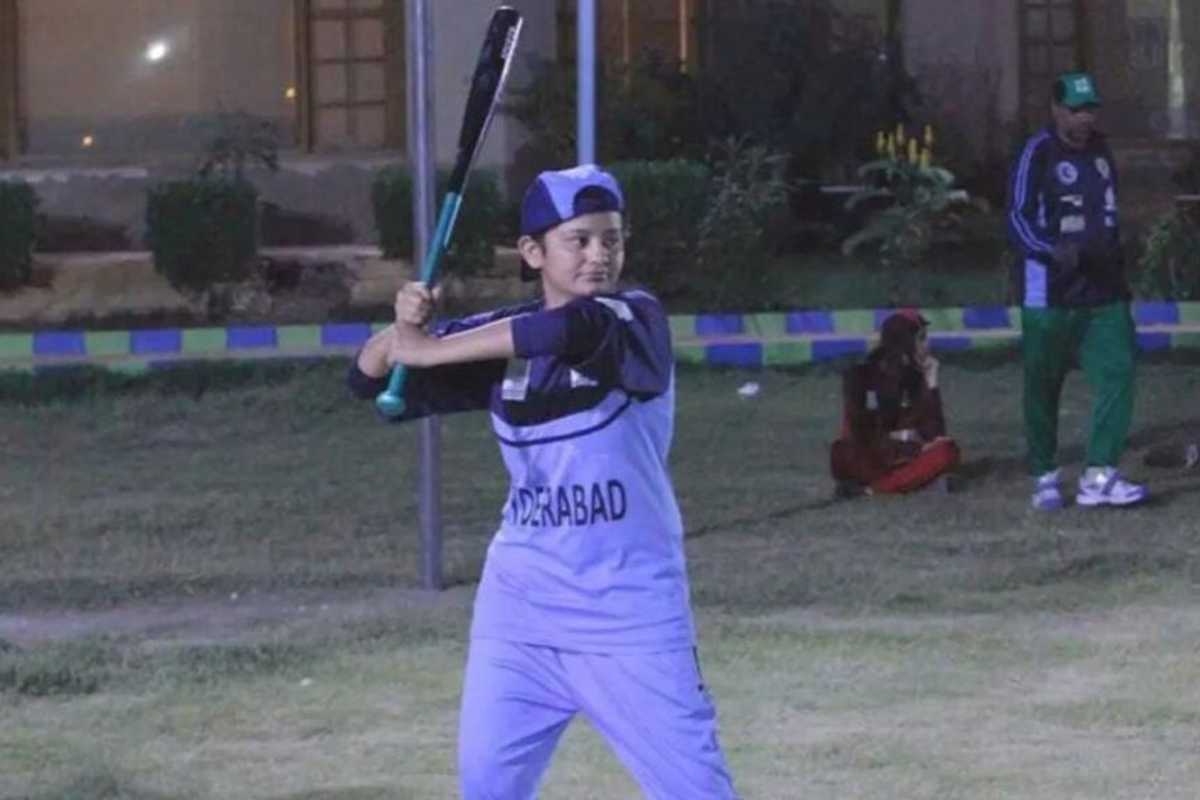Tulsi Meghwar: Pakistani baseball player breaking barriers
Her journey began in 2016, when she was just a sixth-grader

Kulsoom Jahan
Sports Correspondent
Kulsoom Jahan is a driven and accomplished professional with a passion for sports, news, storytelling, and in-depth fact-gathering. With eight years of experience in the sports media industry, she has honed her skills in conducting insightful interviews, crafting compelling narratives, and delivering high-quality content. Known for her ability to meet deadlines well in advance, Kulsoom is meticulous in her attention to both video and audio details, ensuring excellence in every project she undertakes. Her dedication and expertise make her a valuable asset in the ever-evolving world of sports media.

As a member of the Meghwar Hindu community, where girls’ education is often discouraged, Tulsi’s mere presence in sports was revolutionary.
Nukta
In the quiet lanes of Kotri, a small town in Sindh where tradition often defines the limits of ambition, a young girl dared to dream beyond those boundaries. With a glove in one hand, a bat on her shoulder, and a motorbike as her ride, Tulsi Meghwar is carving a path where none existed — as Pakistan’s first Hindu female baseball and softball player.
Her journey began in 2016, when she was just a sixth-grader. A school sports camp ignited her interest. Despite having no formal training, she decided to try out — and to her own surprise, she was selected. “I saw other girls playing and thought — why not me? I gave the trials and got selected,” she recalls.
That single step launched a journey of determination, struggle, and remarkable perseverance. Tulsi soon began representing Sindh at the national level, participating in tournaments across the country. But her path was far from smooth.
While her parents stood firmly by her side, many in her neighborhood — and even her extended family — did not. Criticism came quickly, often cruelly, not only because she was a girl, but also because she belonged to a marginalized Hindu community.
“People would say harsh things. They questioned why a girl rides a motorbike or plays sports. It hurt — especially when my own parents had no objection. I couldn’t understand why others did,” she shares.
As a member of the Meghwar Hindu community, where girls’ education is often discouraged, Tulsi’s mere presence in sports was revolutionary. She endured mocking glances, unsolicited comments, and judgment each time she rode to practice. But instead of giving in, she grew stronger.
“In the beginning, boys at the ground would clap or laugh when they saw me. I’d feel small — but I kept showing up. Eventually, I stopped noticing. Now it doesn’t matter who’s watching — I’m here to play.”
Transformative victory
In 2016, she made her debut in the 13th National Women’s Softball Championship in Quetta, where her team from Hyderabad claimed second place. That victory proved transformative — not just for Tulsi, but for her entire community.
“The same people who once mocked me came to my house to congratulate my parents. That moment felt like real success,” she smiles. “Now, they talk about sending their own daughters to school and into sports.”
Tulsi has played in cities across Pakistan — including Hyderabad, Karachi, Lahore, Quetta, Gujranwala, and Peshawar — earning medals, shields, and accolades along the way. Yet, despite her growing list of accomplishments, she continues to train in deeply challenging conditions.
There are no dedicated baseball grounds in Pakistan. Girls are often forced to train in cricket fields alongside boys, where the environment can be both intimidating and uncomfortable. Coaching is limited, and equipment is hard to come by.
“I bought my first baseball bat, ball, cap and gloves with my own money. My coach helps when he can, but I still don’t have regular support. I train at home with my sister and learn techniques from YouTube. One good performance can lift the whole team — that’s what keeps me going.”
Now in the final year of her Bachelor of Science (BSc) degree, Tulsi is aiming higher. Her dream: to represent Pakistan on the international stage.
“I’ve been playing since 2016, but no institution has supported me. I ask the Government of Pakistan — please support me. I may be Hindu, but I’m Pakistani too. I want to wear the green jersey and make my country proud.”
Tulsi Meghwar is more than an athlete. She is a pioneer, a symbol of resistance, and a beacon of hope for young girls across Pakistan — especially those who’ve been told that they cannot, or should not, dare to dream.
“Tulsi is not alone — she is the voice of every girl who silently bears the weight of tradition. Today, she teaches them: courage belongs to all.”







Comments
See what people are discussing